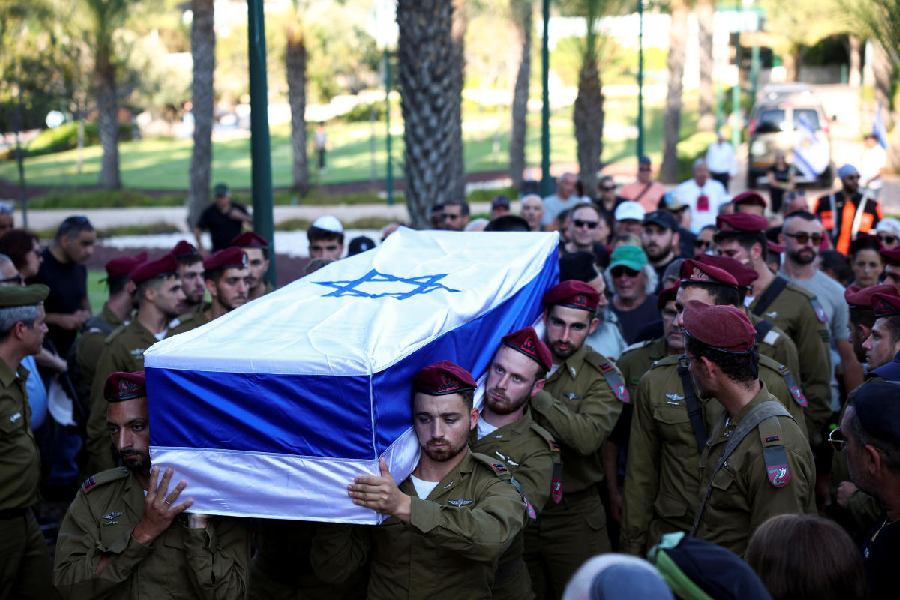Israeli forces recovered the bodies of six Israeli hostages from southern Gaza in an overnight operation, the Israeli military said on Tuesday, highlighting the plight of the scores of captives remaining in the Palestinian enclave.
The military named the hostages whose bodies were returned to Israel as Yagev Buchshtab, Alexander Dancyg, Avraham Munder, Yoram Metzger, Nadav Popplewell and Haim Peri. All but Munder were already known to have lost their lives in captivity.
They were among about 250 people taken hostage last October 7, when Hamas-led militants crossed into Israel from Gaza and carried out attacks that killed about 1,200 people, according to Israeli authorities.
Israeli forces have so far rescued only seven hostages alive. Scores more, mostly women and children, were returned to Israel during a week-long ceasefire last November. More than 100 captives still remain in Gaza, at least 30 of whom are believed to be dead.
Israel’s defence minister, Yoav Gallant, said that the six bodies had been retrieved from Hamas tunnels beneath the city of Khan Younis in a “complex operation”.
The circumstances of the deaths of the six hostages were not immediately clear. A spokesman for Hamas’s military wing, Abu Ubaida, said in March that Metzger and Peri were among seven hostages who had been killed in Israeli airstrikes in Gaza. Hamas then said in May that Popplewell had died from injuries sustained in an Israeli airstrike more than a month before.
Weeks later, the Israeli military said that it was examining the possibility that the three hostages had been killed while Israeli forces were operating in the Khan Younis area.
The retrieval of the bodies came as secretary of state Antony J. Blinken continued a diplomatic push in the region for a ceasefire deal that would see hostages released in exchange for Palestinian prisoners held in Israel. Frustration has grown in Israel over the months of halting talks.
Mati Dancyg, Alex Dancyg’s son, said there had been opportunities to get his father out of Gaza alive. He accused Prime Minister Netanyahu of putting political considerations first because key members of his governing coalition oppose a ceasefire deal.










